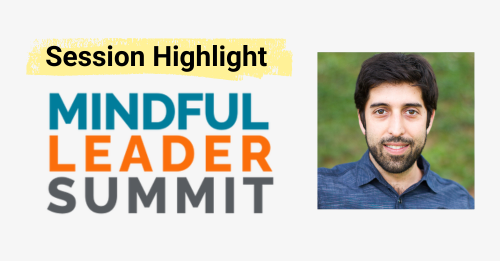The Future of Mindfulness: Open MBSR and Community-Centered Wellness

Session Summary
According to the WHO, more than a billion people worldwide are living with mental health conditions. What if community holds the answer? In this powerful session at the 2025 Mindful Leader Summit, Mo Edjlali, founder of Mindful Leader and author of Open MBSR, explored the transformative potential of community-centered approaches amidst the fast-paced evolution of technology and society. As we enter what he calls a "new age," where autonomous vehicles, ChatGPT, and unprecedented societal shifts are becoming our reality, Mo argues that neither governments, therapists, nor rugged individualism alone can address the mental health crisis we're facing. Drawing inspiration from unexpected sources like Alcoholics Anonymous, Linux open-source software, and Quaker worship traditions, he makes a compelling case for community-centric approaches where we care for each other through peer-to-peer connection, shared practice, and distributed ownership. In an era when AI can listen without limits but human connection requires effort, Mo reminds us that what becomes most precious isn't what technology can provide. It's our attention, our time, and our care for one another.
Key Highlights
- Community-Centric Wellness as a Central Focus: Mo emphasizes the importance of community-centered approaches to wellness, highlighting examples like Alcoholics Anonymous and open-source software like Linux to illustrate how collective support and shared ownership can create sustainable, impactful change.
- The Rapid Pace of Technological and Societal Change: Mo discusses the rapid advancements in AI, autonomous vehicles, and technology, framing this era as a new age comparable to historical age shifts like the Bronze Age, and stressing that everything is up for grabs—exciting yet frightening.
- The Mental Health Tsunami and Collective Responsibility: Mo underscores the global mental health crisis, citing alarming statistics and emphasizing that addressing this challenge will require collective effort—"all of us"—and innovative, community-based solutions to support mental well-being in an increasingly complex world.


0 comments
Leave a comment